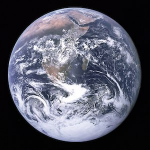A new study projects that the world population, which now stands at 7.8 billion, will peak in 2064 at 9.7 billion then fall by 2100 to 8.8 billion. If the UN's Sustainable Development Goals are met, the population could be even smaller at 6.3 billion.
world population
The rate hit an all-time low of 1.73, which is well below the replacement rate of 2.1 births per woman. Despite this, the nation is projected to add roughly 65 million to the total population over the next 30 to 40 years, representing an increase of about 19 percent.
We aren't the sort of organization that likes to say "We told you so." (Okay, that was a lie. We totally are.) Secular doomsday prophet Paul Ehrlich has been proven wrong (again), and ACSH has been proven correct (again).
Conventional wisdom tells us that there are too many humans on this planet. But the data disagree. In a new book titled "Empty Planet: The Shock of Global Population Decline," Darrell Bricker and John Ibbitson argue that the world is about to face radical change due to depopulation.
A Japanese official blamed the country's shrinking population on people who don't have children. The comment was a classic Kinsley gaffe, something that was obviously true but taboo to say, possibly because it's a touchy subject in Japan.
World population growth is a hot-button issue. A large segment of the public seems to believe that humans will continue to reproduce until we run out of food and water. Basically, we're just like cockroaches or bacteria. No serious demographer believes that -- as world fertility has been declining for years -- but facts haven't killed off this pernicious myth.




